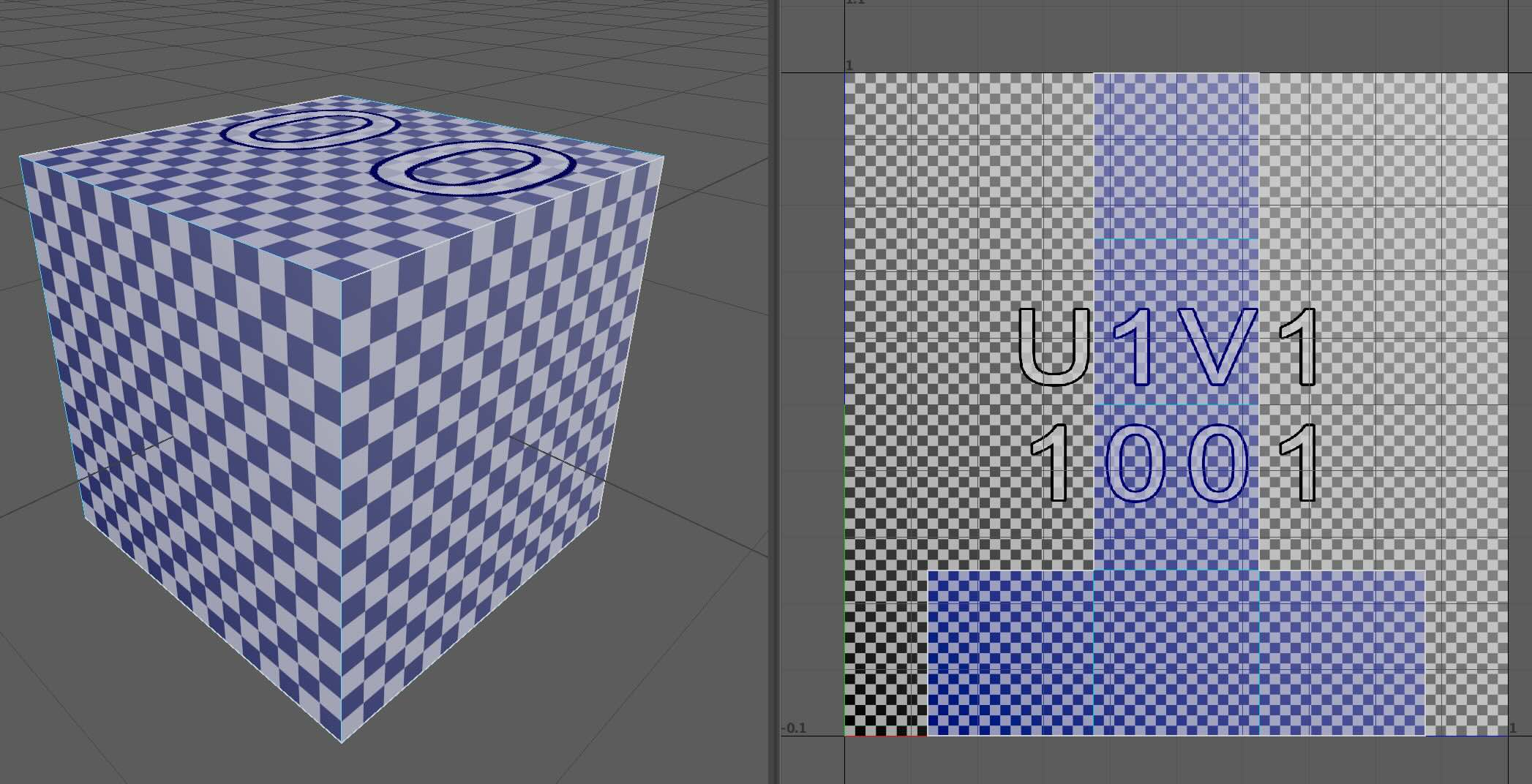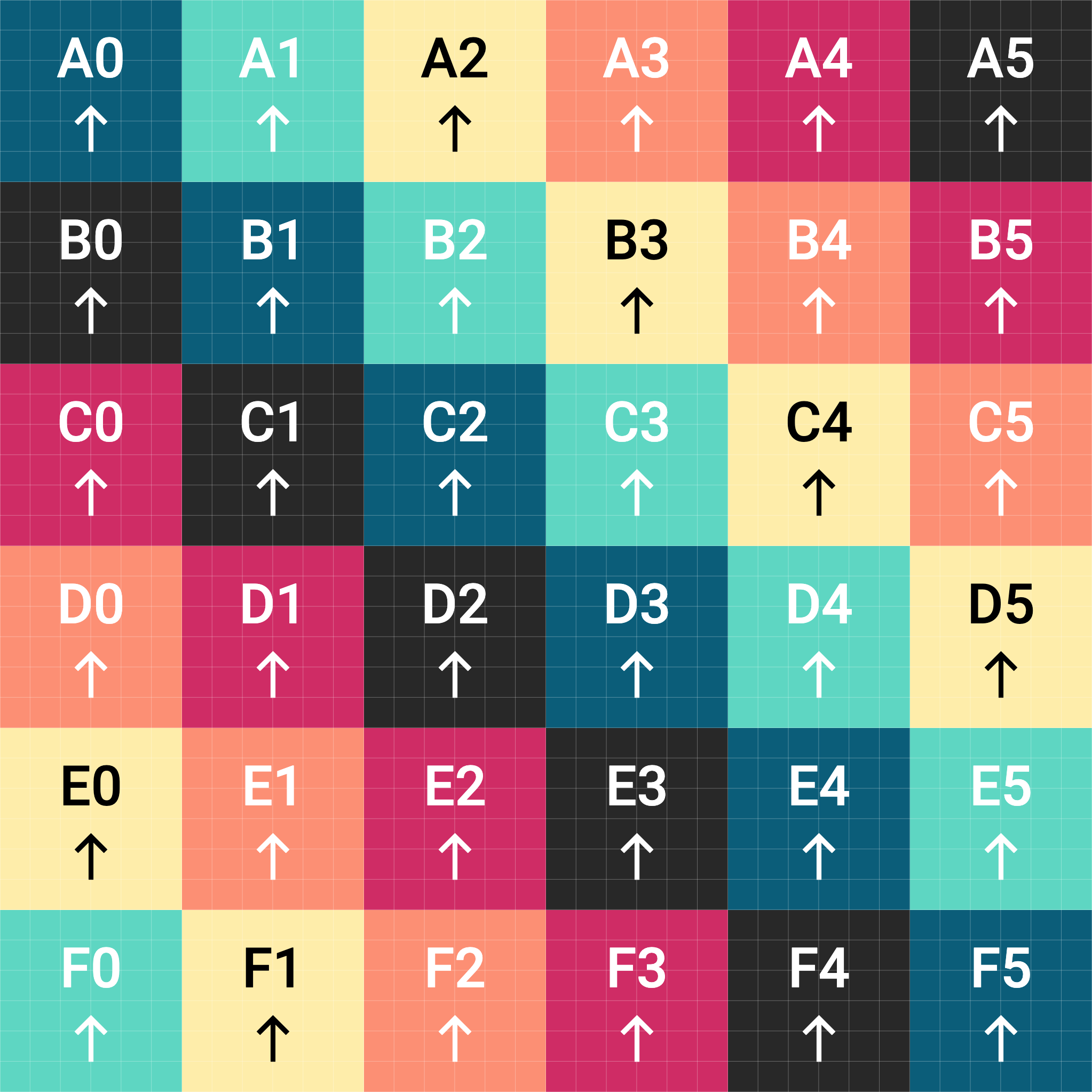UV coordinates are arranged differently than the pixels on a computer screen. On a computer screen, often the coordinate (0,0) is the top left of the screen and then the numbers count right and down up to the number of pixels on the screen. In UV coordinates (0,0) represents the lower left of the coordinate space and (1,1) represents the top right. Notice that the max UV value is 1. This is true even if using a 4k or 8k texture image, the coordinates are normalized values between 0 and 1.
UV Mapping is the process of unwrapping the skin of a mesh model so it can be painted with texture. Since the surface of 3D forms cannot be laid flat without cutting or stretching, it is important to unwrap UVs with as little distortion as possible for good textures.
Since textures will appear distorted and stretched if not evenly UV unwrapped, applying a temporary UV checker texture can help identify distorted points and check the UV mapping for consistent scale. If the scale of the UV shells is not consistent then parts of the displayed texture will be higher resolution that others and it will look off. Maya and Blender can both create a UV checker texture for examining UV unwrapping. Sometimes it is helpful to have a more detailed UV checker texture with annotations and colors to help see which part of the UV space a UV shell is in. There are multiple online UV checker Map creation tools such as UV Checker Map Maker .
Checker map created with UV Checker Map Maker developed by Jorge Valle Hurtado 1
References
UV Checker Map Maker developed by Jorge Valle Hurtado ↩︎

